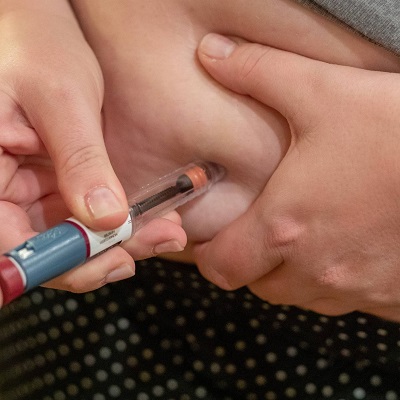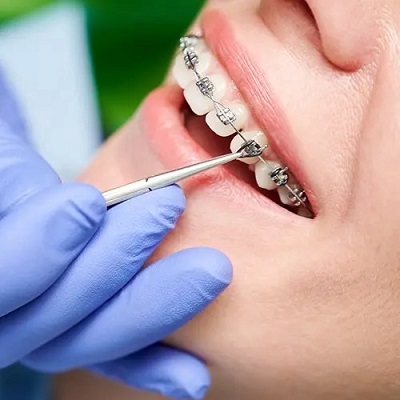 Conversion-Focused Landing Pages – More Leads, Less Bounce!
Conversion-Focused Landing Pages – More Leads, Less Bounce!
How to Choose the Best Whitening Treatment for Sensitive Teeth
Written by aliza » Updated on: June 17th, 2025

For those with sensitive teeth, whitening treatments may seem daunting due to concerns about discomfort or pain during the process. However, achieving a brighter smile doesn’t have to come at the expense of your comfort. Choosing the right whitening treatment can make all the difference in maintaining your smile without aggravating sensitivity. If you're considering teeth whitening, visiting the Best Teeth Whitening Clinic in Dubai is a great first step, as professionals can recommend treatments tailored to your specific needs.
Sensitive teeth require special care, and with the right approach, you can enjoy a sparkling smile without worrying about painful side effects. This guide will walk you through how to choose the best whitening treatment for sensitive teeth, ensuring a safe, effective, and comfortable experience.
Understanding Tooth Sensitivity:
Tooth sensitivity is a common issue that affects many people, often making certain treatments feel uncomfortable. It’s important to understand the cause of your tooth sensitivity before choosing a whitening solution.
Causes of Sensitivity: Sensitivity often arises from exposed tooth roots, thinning enamel, or gum recession. These conditions make the inner layers of your teeth more vulnerable to external factors, like cold, heat, or certain chemicals found in whitening products.
How Whitening Affects Sensitivity: Some whitening treatments contain peroxide or other chemicals that can irritate the nerves in your teeth, exacerbating sensitivity. Understanding how different treatments affect sensitivity will help you make an informed decision.
Factors to Consider When Choosing a Whitening Treatment for Sensitive Teeth:
When you have sensitive teeth, it’s crucial to select a whitening treatment that minimizes discomfort while still providing effective results. Here are key factors to consider:
1. Whitening Agent Strength:
The concentration of whitening agents used in a treatment plays a significant role in how much sensitivity you experience. Higher concentrations of hydrogen peroxide or carbamide peroxide are more effective but can also increase the risk of irritation.
Lower Concentrations: If you have sensitive teeth, look for treatments that use lower concentrations of whitening agents. These are gentler on the teeth and less likely to cause discomfort.
Customizable Treatments: Some treatments, like custom whitening trays, allow for a more controlled application of whitening gel, reducing the chances of irritation.
2. Treatment Duration:
The length of time that the whitening product remains on your teeth also affects how sensitive they may become.
Shorter Sessions: In-office whitening treatments with controlled timing are ideal for sensitive teeth. Procedures like Zoom Whitening, which can brighten your smile in about an hour, offer quicker results with minimal discomfort.
Gradual Whitening: For those who prefer a slower approach, at-home whitening kits with lower-strength peroxide are a better option. These allow you to gradually whiten your teeth over time, reducing the likelihood of irritation.
3. Desensitizing Options:
Many professional whitening treatments come with additional desensitizing agents designed to reduce discomfort. These options are beneficial for people with sensitive teeth and help balance out the potential irritation caused by whitening agents.
Desensitizing Gel: Some in-office treatments involve the application of a desensitizing gel before or after whitening. This gel can help protect your teeth from the harsh effects of the whitening agent.
Sensitive Whitening Toothpaste: Many whitening toothpastes formulated for sensitive teeth contain ingredients that help desensitize the teeth while still providing whitening effects. These are excellent for aftercare.
4. Whitening Technique:
The technique used in the whitening treatment can also impact how gentle the process is on sensitive teeth. Some methods are more invasive or aggressive, while others are milder but still effective.
In-Office Whitening: Treatments like Zoom Whitening are typically done in a dental office under the supervision of a professional. This option is effective for sensitive teeth because the procedure is closely monitored, and desensitizing agents are often used.
At-Home Whitening: If you prefer to whiten your teeth at home, your dentist can provide custom-fit trays and gels. This allows for more control over the process and minimizes exposure to the whitening agents, which is gentler on sensitive teeth.
Laser Whitening: Laser whitening can also be a good option for sensitive teeth as it uses heat and light to accelerate the whitening process. The light is applied to the whitening gel, which works faster and can minimize the time your teeth are exposed to potentially irritating chemicals.
5. Post-Treatment Care:
Proper aftercare can help alleviate any discomfort following a whitening session and ensure long-lasting results.
Desensitizing Toothpastes: After a whitening treatment, using a desensitizing toothpaste can reduce sensitivity. These products are specifically designed to protect the enamel and soothe irritated nerves.
Fluoride Treatments: Some dental clinics offer fluoride treatments after whitening sessions to strengthen the enamel and reduce sensitivity.
Avoiding Trigger Foods and Beverages: After a whitening treatment, avoid hot, cold, or acidic foods and beverages that can trigger discomfort in sensitive teeth. Stick to lukewarm or room-temperature food and drinks for the first few days.
Popular Whitening Treatments for Sensitive Teeth:
There are several whitening treatments available that are designed specifically for sensitive teeth. Here’s a look at the most common options offe red by the Best Teeth Whitening Clinic in Dubai:
red by the Best Teeth Whitening Clinic in Dubai:
1. Zoom Whitening:
Zoom Whitening is one of the most popular in-office treatments, known for its quick results and effective whitening. This treatment uses a professional-grade hydrogen peroxide gel and a special light to activate the gel, breaking down stains.
For Sensitive Teeth: The dentist can adjust the strength of the whitening gel and use desensitizing agents to protect your teeth during the procedure. This minimizes discomfort and reduces the risk of irritation.
Benefits:
Immediate results in about an hour.
Professional supervision to ensure comfort.
Customizable for sensitive teeth.
2. Custom Take-Home Whitening Kits:
If you have sensitive teeth but prefer to whiten your teeth at your own pace, custom take-home whitening kits are an excellent option. These kits include custom-made trays that fit your teeth perfectly, ensuring that the whitening gel is applied evenly.
For Sensitive Teeth: Dentists can prescribe lower concentrations of whitening agents for a gentler effect. You also control the length of time the gel is on your teeth, which can help prevent overexposure.
Benefits:
Gradual whitening, which is gentler on sensitive teeth.
Custom fit for optimal comfort and safety.
More affordable than in-office treatments.
3. Laser Teeth Whitening:
Laser whitening uses light and laser technology to activate the whitening gel, speeding up the whitening process. It’s often a good option for people with sensitive teeth because it can be completed in a shorter time.
For Sensitive Teeth: The laser activates the gel quickly, so your teeth are exposed to the whitening agent for less time. Additionally, many clinics offer desensitizing treatments alongside laser whitening.
Benefits:
Quick results with minimal discomfort.
Less exposure to harsh chemicals.
Ideal for individuals with deeper stains.
4. Whitening Strips for Sensitive Teeth:
For at-home whitening, sensitive teeth-friendly whitening strips can be an effective solution. These strips contain lower levels of peroxide to reduce irritation while still whitening your teeth.
For Sensitive Teeth: The strips are often coated with a desensitizing agent, and their gradual effect ensures a more comfortable whitening experience.
Benefits:
Convenient and affordable.
Gentle on sensitive teeth.
Easy to use.
Maintaining Your Whitening Results
Once you’ve undergone a whitening treatment, it’s essential to maintain your results while protecting your sensitive teeth.
Good Oral Hygiene: Brush twice a day with a fluoride toothpaste and floss regularly to prevent new stains from forming.
Avoid Staining Foods and Drinks: Minimize consumption of coffee, tea, wine, and other staining foods that can dull your smile.
Regular Touch-Ups: Schedule occasional touch-up treatments or use at-home whitening kits to maintain your bright smile.
Consult Your Dentist for Personalized Advice:
The best way to ensure a safe and effective whitening experience is to consult with a dentist at a Best Teeth Whitening Clinic in Dubai. A dentist will assess your teeth, take your sensitivity into account, and recommend the most appropriate whitening treatment based on your unique needs.
Final Thoughts:
Choosing the right whitening treatment for sensitive teeth is essential to achieving a brighter smile without discomfort. By considering factors such as whitening agent strength, treatment duration, desensitizing options, and your post-treatment care, you can make an informed decision. Whether you opt for Zoom Whitening, custom take-home kits, or laser whitening, there are several options available at the Best Teeth Whitening Clinic in Dubai to cater to your needs. With the right treatment and care, you can enjoy a beautiful, bright smile without the worry of sensitivity.
Note: IndiBlogHub features both user-submitted and editorial content. We do not verify third-party contributions. Read our Disclaimer and Privacy Policyfor details.
Copyright © 2019-2025 IndiBlogHub.com. All rights reserved. Hosted on DigitalOcean for fast, reliable performance.














